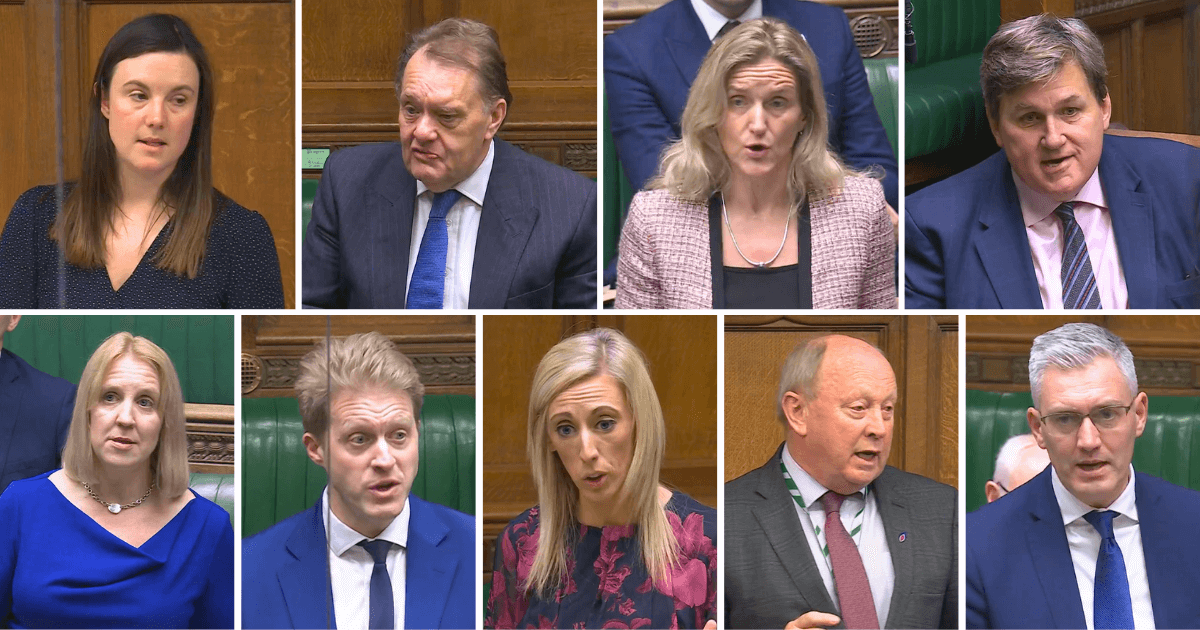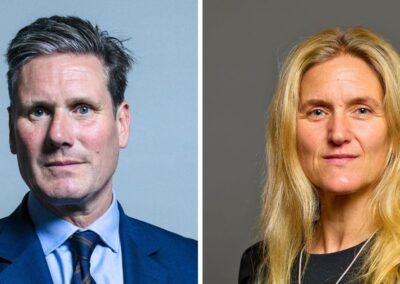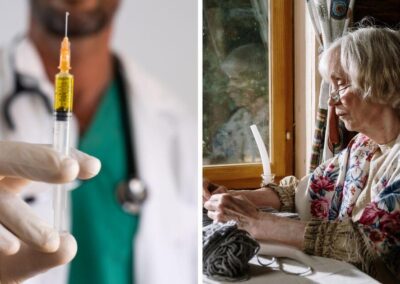Parliament has granted a “blank cheque” for Kim Leadbeater’s assisted suicide Bill amid an outcry from MPs concerned about cost implications in an underfunded palliative care sector.
On Wednesday, as part of the process for passing a bill, MPs had to agree on a ‘money resolution’ for Leadbeater’s Terminally Ill Adults (End of Life) Bill before it is able to pass on to Committee Stage.
However, since there has not yet been an impact assessment, several MPs were highly critical of the resolution due to the difficulty of scrutinising legislation without knowing its likely cost.
The resolution said that – for any Act that might result from the Bill – “it is expedient to authorise the payment out of money provided by Parliament of any expenditure incurred under or by virtue of the Act by the Secretary of State, and any increase attributable to the Act in the sums payable under or by virtue of any other Act of money so provided”.
Blank cheque
Sir John Hayes MP, in particular, focused on the vague wording of the resolution saying Kim Leadbeater “says that this is not a blank cheque, but you can’t get much more blank than that can you? Essentially, any monies associated with the Bill—if it becomes an Act—will be provided”.
“[W]e have to ask the question” he went on, “where will that money come from? Presumably it can come only from existing resource, and one assumes palliative care”.
Labour MP David Smith made similar remarks, saying that MPs were “being asked to approve a blank cheque for assisted dying”.
“If that were the case for any other legislation, we would be shouting about it”.
“The Bill represents a profound change to the very nature of our healthcare system, and we are simply guessing at the cost. That is not good for the Bill Committee’s ability to scrutinise, and not good for this place, or for the democratic and legislative process”, he added.
MP for North Antrim Jim Allister said “There is no more important function for Members of this House than that of being the guardians of public money. It is very hard to equate the performance of that function with signing a blank cheque, and yet that is what we are being asked to do today. One thing is abundantly clear: if this Bill passes, it will bring with it a huge financial burden in perpetuity”.
Funding for assisted suicide but not palliative care
Labour MP Maya Ellis took issue with the idea that assisted suicide might be fully funded by the state while other services within the NHS are still struggling.
“The argument is made about dignity in dying. I struggle to see the fairness, however, in pursuing spend to allow dignity in dying when we struggle to fund dignity in other areas of the NHS”.
“We likewise know that the dignity offered to disabled people, those receiving palliative care and those in supported living is often far less than they deserve. One of the biggest flaws in the Bill, therefore, is the money resolution. I do not see how we can sign a blank cheque to guarantee dignity only in death when dignity in all parts of life is still so desperately in need of resources, and equally deserving”.
Labour MP Antonia Bance said “This Bill will impose new unfunded and unknown costs on our courts. It blithely assumes that judges and courts will be available, yet the waiting time for a family court case at the moment is 10 months. That just will not work for the Bill. How much will the extra spending on courts cost?”.
Carla Lockhart MP blasted the apparent commitment to funding for assisted suicide, which was not available for use elsewhere. “It is mind-blowing that there is no money to pay for winter fuel payments or to support the Women Against State Pension Inequality campaign, yet the House is about to approve the provision of a bottomless pot of money to create a state-funded, gold-plated assisted suicide service” she said.
Dr Ben Spencer MP and Anna Dixon MP also asked questions about the extent to which assisted suicide would be funded by the NHS or whether it would be in private hands to any degree.
Assisted suicide could save money by removing those reliant on “expensive care services”
Co-sponsor of the assisted suicide Bill Conservative MP Kit Malthouse, seemingly to assuage concerns about the cost of a “blank cheque” for assisted suicide, drew attention to the money that might be saved by removing the reliance on “expensive care services”.
“We must remember that the people we are talking about—the dying individuals who may want to make this choice at the end of their life—are already receiving treatment in the national health service”.
“They are already reliant on expensive care services, drugs and so on, as well as social support mechanisms that cost the taxpayer”.
He added that MPs “should not pretend that the status quo is cost-free, because it is costly”.
Rather than being reassured by this suggestion, David Smith raised concerns about “potentially scarce funding from end-of-life care and allocating it to ending lives”.
“That opens up the dark possibility of a race to the bottom—to looking for savings in the health and social care budget”, he said.
“Any Government would be tempted, where cost saving is a possibility, to push assisted dying as a cost-saving measure; we have seen that in jurisdictions such as Canada”.
The 23 MPs on Leadbeater’s assisted suicide Bill committee will begin hearing evidence from experts next week.
Spokesperson for Right To Life UK, Catherine Robinson, said “MPs are right to characterise this money resolution as a “blank cheque” for that is just what it is. There does not seem to be any justification for the seemingly unlimited resources to be allocated to introduce assisted suicide while there are very limited resources currently available for palliative care. This legislation is a disaster in waiting and MPs must vote against it at every opportunity”.












